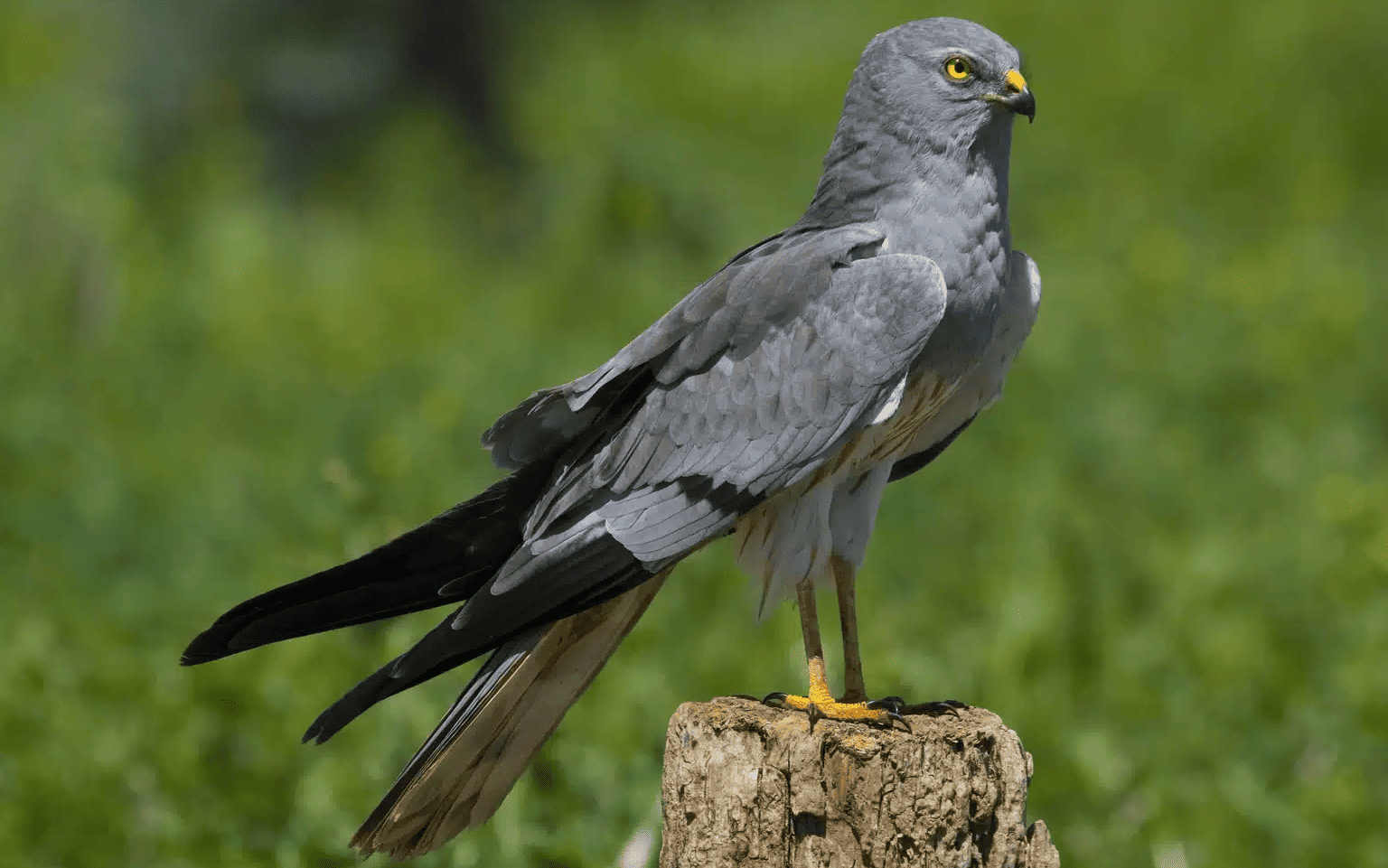Circus Pygargus (Aguilucho Cenizo) It is a pointed -migrating raptor that nestles on the ground, closely associated with cultivation grounds, mainly cereals and feed. It is mainly vulnerable to changes in agricultural practices that cause the destruction of nests and exposure to higher levels of predation.
But also for extreme climatic conditions and the loss of habitat associated with the reduction of grain crops in favor of other crops and land use, often subsidized by agricultural or forest policy. The Species went from a “safe” population status in the EU to “threatened”.
The Life SOS Pygargus Project has determined the tools for the short and long -term preservation of the populations of Cyrcus Pygargus In the most important areas of Portuguese and cross border distributionThrough the implementation of conservation measures with regard to habitat management, the improvement of reproductive success, the limitation of threats and the reduction of mortality.
Transnational Aguilucho -Protection AS
The Campaign “Save the Aguilucho Ash” has already started in western Spain and in Portugal to protect the nests of this endangered bird of preyDue to the increase in reproductive success and the reduction of the death of the chickens. Developed by the Life SOS Pygargus project, in which Grefa participates, this campaign has the collaboration of farmers.
The campaign, articulated with other broader and more multi -sectoral measures, revolves around the monitoring of the ASH Auilucho in the most important distribution areas in the west of the Iberian Peninsula From the side of the members of life SOS Pygargus and volunteer project, as well as with the identification of nests to guarantee their protection, the rescue of eggs and chickens if necessary and the consciousness and involvement of the farmers, whose cooperation is the key to the success of these efforts.
He Aguilucho Ash (Circus Pygargus) It is a migratory bird that arrives from Africa and stays in its reproduction areas, mainly in Portugal and Spain, between March and September. In Spain, this species is classified as “vulnerable” and its threat is assessed.
The population has had a sharp decline in recent years, Both in Spanish and in Portugal Territory, where the bird is cataloged and “in danger”. The nesting Aguilucho in the soil, mainly in grain or feed crops, and depends on this habitat to feed and reproduce.
Factors that threaten the species
Every year, Various factors threaten the species, causing the mortality of specimens and a drastic reduction in reproductive successWhat puts his survival in danger. An important factor is the loss of habitat as a result of the reduction in the planned area with grains and its transformation into other permanent crops or other land use.
The Replacement of grains with feed and climate change have considerably increased mowing activity during the nesting period of the Axis AlfiluchoWith a strong impact on reproductive couples as a result of the involuntary destruction of nests by agricultural machinery and the increase in the pressure of natural predators of the species.
Cooperation between farmers, nature conservators and scientists is essential to identify and allow nests Implementation of ground protection measures. These measures include the installation of gates to protect nests during agricultural activities and the prevention of predators such as Fox.
Asizo Aguilucho is a natural ally of farmers. A single couple consumes more than a thousand Harmful animals for crops in the breeding season, including insects, small rodents and birds. His presence in crops is in favor of the productivity of agriculture and the ecological balance.
Egg -rescue program
The Campaign “Saving Aguilucho Ash” tries to guarantee the protection of nests in the natural environment, This allows reproductive couples to nest the chickens naturally to develop in the field. However, if this is not possible, the teams of the Life SOS Pygargus project will save the eggs or chickens to save them.
The eggs will be artificially incubated in institutions and centers specialized in Spain and Portugal. The chickens, Both of artificial incubation and saved in nestsThey will be transferred to specialized captivity centers to complete their development.
When they achieve the right age, The rescued chickens are included in a program of hacking (Country Breeding) in Spain and Portugal. This program wants to restore and strengthen the population of Aguilucho ASH in a specific area, using its philopathy instinct, which is the construction of a species to establish its territory of reproduction in the same place where it was born or spent its first weeks of life.
To do this The rescued chickens will be located in a structure installed in the natural environmentWhere is at least 45 days old and acquires vital skills, such as hunting to feed, identify dangers and communicate with their environment until they are finally gradually and safely released.
In this installation will offer the necessary care and will be checked, so that contact with people is fully avoided. In addition, there will be Aguiluchos Ashes teachers for adults who will help young people to get autonomy to be successfully reintroduced in nature.
Individuals integrated in this program They are ringed and equipped with GPS/GSM devices For your medium and long term monitoring, which offers valuable information for your study and conservation.
Aguiluchos Friends Network
Save until Aguilucho Ash in West -Spain and in Portugal is a huge task What requires great efforts and especially civil and multi-sectoral cooperation.
That is why the network is made in the context of this project «Aguilucho Cendo Friends«, With whom everyone can participate: farmers who want to help save their ally in the area and Volunteers who are committed to preserving biodiversity who want to support the actions on the fieldSuch as rescue campaigns, as well as entities and companies with environmental engagement that can finance actions, individually or collective.

